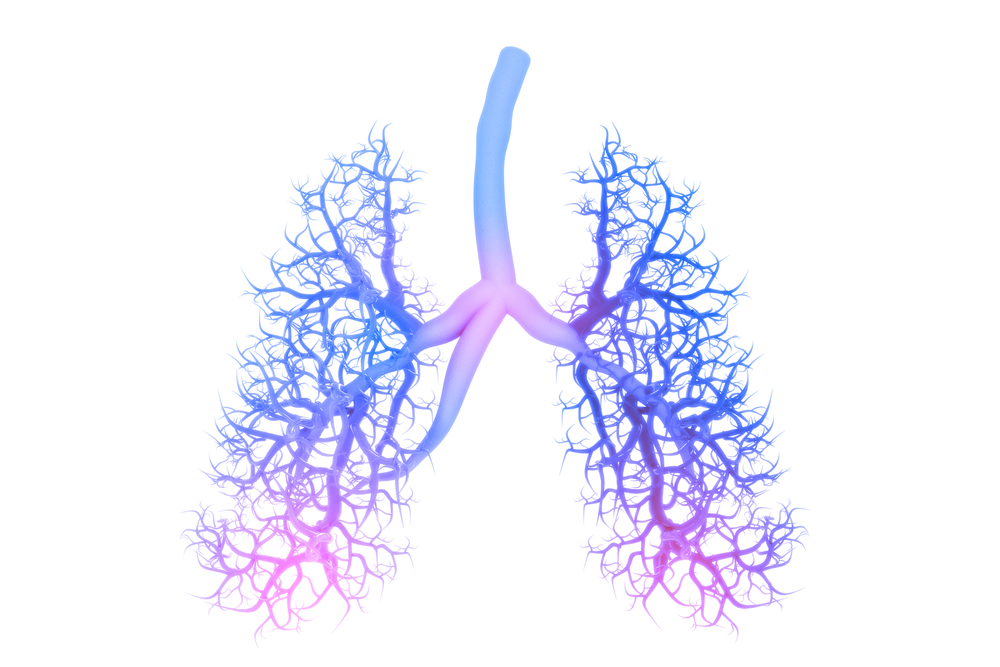Hospitalized COPD Patients with AFib More Likely to Develop Complications, Study Reports

Hospitalized patients with chronic obstructive pulmonary disease (COPD) who also suffer from atrial fibrillation (AFib), a condition where the heart beats faster, have a greater risk of developing liver disease and respiratory failure compared to those not affected by AFib, according to researchers.
Their study, “The impact of atrial fibrillation in patients with COPD during hospitalization,” was published in the International Journal of Chronic Obstructive Pulmonary Disease.
COPD is a chronic inflammatory disease that progressively causes damage to the lungs. The disease is frequently associated with other conditions, including AFib, a disorder where the heart beats faster at an irregular pace (heart arrhythmia), which can lead to severe complications such as heart failure and stroke.
There are many risk factors contributing to the development of atrial fibrillation in COPD patients, including smoking, lack of tissue oxygenation (tissue hypoxia) caused by poor gas exchanges in the lungs, and side effects of medication.
However, information regarding the impact of AFib on serious health outcomes, such as organ dysfunction, severe sepsis, and respiratory failure in hospitalized COPD patients is still lacking.
Researchers from Taiwan aimed address this question. “To our knowledge, this is the first nationwide study to demonstrate the impact of [atrial fibrillation] in COPD patients admitted to a hospital,” they wrote.
The study enrolled a total of 882 patients with COPD and AFib, and 2,646 people with COPD but without AFib from the National Health Insurance database in Taiwan.
The control subjects (patients with COPD without AFib) were selected from the pool of COPD patients who had no history of atrial fibrillation, and were matched to COPD patients with AFib by age, gender, and year of disease diagnosis.
The primary outcome of the study was to predict how long it would take for any first event — such as organ dysfunction, severe sepsis, respiratory failure, or death — to occur during the hospitalization period.
Results showed that COPD patients with atrial fibrillation had a higher prevalence of comorbidities, including hypertension (68.3% vs. 46.3% in COPD patients without AFib); diabetes (22.8% vs. 16.5%); high levels of lipids or fats (hyperlipidemia; 19.5% vs. 14.7%); cerebrovascular accident (25.3% vs. 16.9%), and congestive heart failure (20% vs. 8.4%), compared to control subjects.
Patients with COPD and atrial fibrillation were also more prone to develop infections compared to those who only had COPD, and required more life-support resources such as mechanical ventilation.
As for the study’s primary goal — the probability of a first event to occur during hospitalization — it was higher among COPD patients with AFib (44.4%) than in COPD patients without atrial fibrillation (36.8%).
Organ dysfunction and respiratory failure were also more likely to take place in patients with COPD and AFib compared with control subjects — 40.1% vs. 33.4% for organ dysfunction, and 27.2% vs. 22.3% for respiratory failure, respectively.
When researchers analyzed organ dysfunction in more detail, they found that patients with COPD and AFib had a higher risk of liver disease compared with COPD patients without atrial fibrillation.
No significant differences between the two patient groups were found regarding the occurrence of severe sepsis or death.
“After admission to a hospital, there was no statistically significant risk of sepsis, but hepatic dysfunction and respiratory failure were higher in COPD patients with [AFib] than in COPD patients without [AFib],” researchers wrote.
The relationship between AFib and liver dysfunction needs additional study, they added.
The findings indicate that patients with COPD and atrial fibrillation are at a higher risk of developing a series of disease comorbidities and suffer from complications in the hospital, such as respiratory failure and liver disease.






